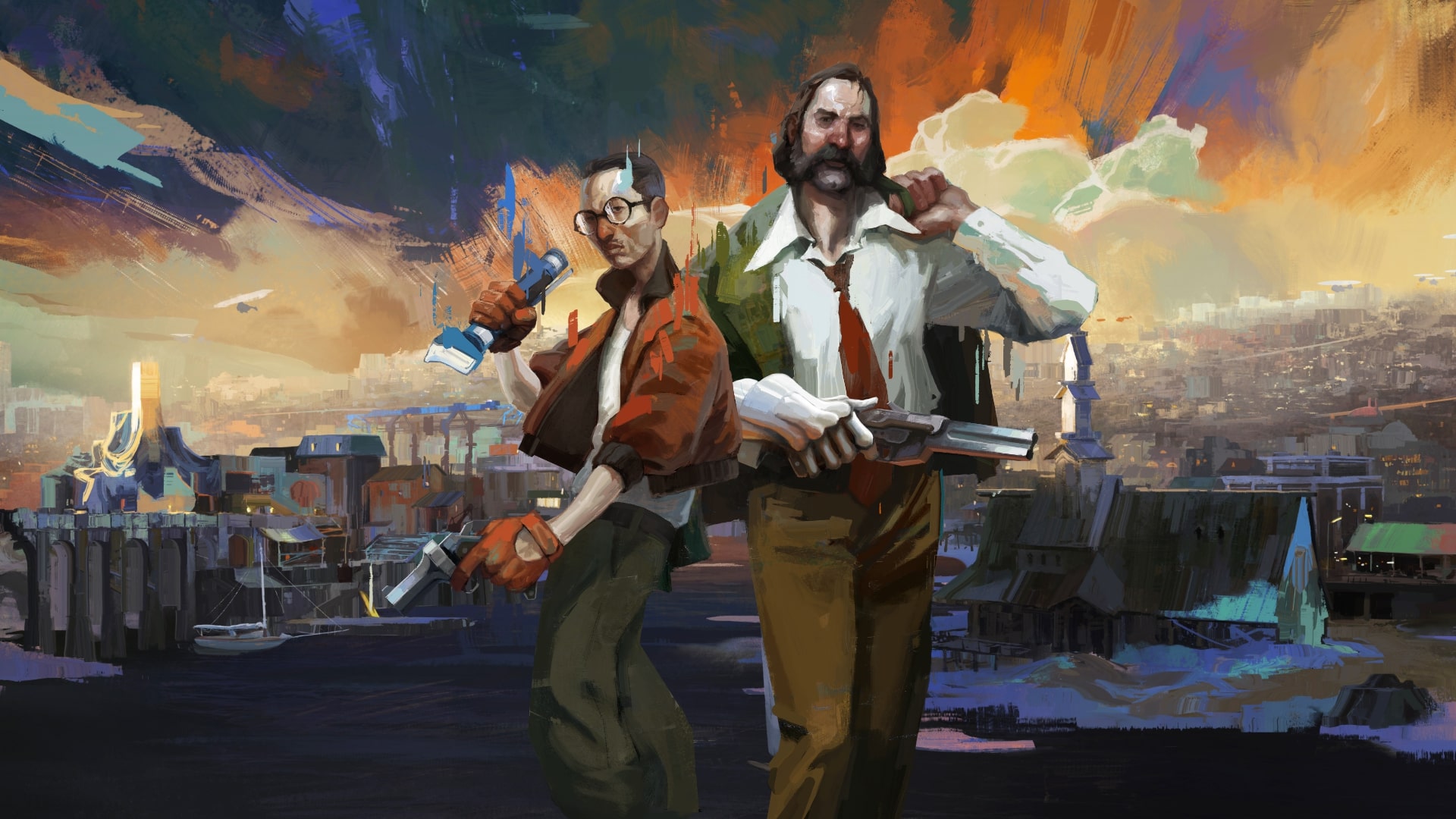From huge success in 2019 to a very confusing situation full of allegations and lawsuits. Perhaps this is how you can sum up the events around the ZA / UM studio behind the Disco Elysium game. Everything is very confusing, and so far we have heard only fragments of the whole story. But now the People Make Games YouTube channel has released a two-hour video that includes interviews with all the key people. If you want to get the full picture, then I definitely recommend watching the video in its entirety, I will try to at least give a brief summary, no matter how difficult it may be in this case.
First, you need to summarize the basic information. Studio ZA/UM originally belonged to the entrepreneurs Margus Linnamäe (more than 80% of the shares) and Ilmar Kompus, who got the rest. But after the release of the game, the shares were bought back and redistributed among a large number of people. Ilmar Kompus received about 20%, while writer (but in this case primarily an investor) Kaur Kender, lead designer Robert Kurwitz and lead artist Alexander Rostov each received 10.2%. The rest (less than 47%) was left to Linnamäe, who thus lost his majority, the studio was no longer controlled by one person.
In addition to the head office in Estonia, a new company, ZA/UM UK Ltd, is currently being set up and, as the name suggests, is based in the United Kingdom. The rights to the Disco Elysium brand were also transferred here. The shares were divided into 5 equal shares between Kurvitze, Rostova, Kendera, Kompuse and YesSirNoSir Ltd. This company is owned by Anja Reiman, a friend of Tonis Haavel. The latter is affiliated with Compus, as they used to have a joint company. Haavel was involved in a financial scandal and sentenced to prison. And the same person works at ZA/UM as an executive producer. According to Compus, he did a great job and without him Disco Elysium would not have been created.
During 2021, there were big changes when Linamäe decided to sell his entire share in the company to Ilmar Kompus, who thus received a comfortable majority (69%). Exactly how this deal came about is somewhat disputed, with Kurvitz and Rostov claiming they were unaware of it and did not consent to it. In addition, Kaur Kender sued Kompus for receiving a loan from UK affiliate ZA/UM, which he then repaid by buying out the new game concepts for £1 and then selling them to the studio for €4.8 million. However, it must be said that Kender ended the trial and it is not clear whether this event actually happened. By the way, after the out-of-court settlement of the dispute, Kender sold his stake to the Kompus company, which, thus, already owned 79% of the shares.
The business part doesn’t end there either. Linnamäe reportedly had a stipulation when selling his shares that he wanted to have something to do with the Disco Elysium sequel. Therefore, a new company, Newelysium Limited, was founded, within which the rights to the sequel to this game were transferred. Linnamäe received 10%, Kompus 5% and the rest went to ZA/UM UK Ltd.
A subsequent interview with Ilmar Kompus did not bring much results. He tried to avoid questions. He claimed that all shareholders knew about the transactions, but at the same time said that it was only oral communication, and not written, official.
But there’s another side to the story, because Kompus fired chief designer Robert Kurwitz, chief designer Alexander Rostov, and chief writer Helen Hindpere. The reason must have been the simple fact that they did not work, did not fulfill their duties. In addition, there have been various accusations of Kurvitz’s toxic behavior. This brings us to the second part of the interview with several ZA/UM staff members.
Writer Argo Tuulik, a longtime friend of Kurvitz, says he considered Robert a kind of mentor, almost a god. Their relationship was supposedly really unhealthy, but he got out of it in time thanks to his wife. Although Kurvitz is a brilliant artist, Tuulik says he likes to be the center of attention, and his behavior towards other employees, whose multi-day work, he says, he often called a waste and needed an overhaul, can really be called toxic. Argo then confirms that Kurvitz, Rostov and Hindpere did not really work much. Although Hindpere is credited as the main author in the Extended Cut of Final Cut, she is said to have written almost nothing.
People Make Games also interviewed other employees. Namely, the chief designer Kaspar Tamsalu, who took over the duties after Rostov, who allegedly went on a long vacation. Also, Justin Keenan, head writer for Disco Elysium Final Cut, said that Helen didn’t even write a word. He also claims that after the release of Final Cut, Kurvitz told him to have two junior writers write the script for the sequel, test them for suitability for the job, and then evaluate the work. This seemed odd to Keenan, since they were both already working on Final Cut, but he got the job done. When Kurvitz was about to review the work, he told Keenan that he should tell both writers on his behalf that they did a good job, but they couldn’t be part of the core team on the sequel. This frightened Justin, and he asked if Kurvitz had even read the text, to which he replied that, of course, he had read it. Only a few months later, Kurvitz admitted to one of the writers that he had not read a word.
Chief technologist Petteri Sulonen, on the other hand, claims that two days after Robert Kurvitz was fired, he asked him to do something that would most likely get him fired. Sulonen was reluctant to elaborate, but Ilmar Kompus told People Make Games that Kurvitz wanted Petteri’s Disco Elysium source code, which Sulonen eventually confirmed.
At the end, we were treated to an interview with the “main” trio. Helen Hindpere claims that she didn’t even know the dates, which other writers have complained about not giving them. And they say that she worked on the voice acting, and not on the script, although in the credits she is listed as the main writer. Kurvitz, on the other hand, claims that Kompus simply stole the entire company and didn’t know about any of the transactions. He denies the accusation of trying to steal the source code, according to Compus, he should have contacted companies like Ubisoft or Microsoft, to whom he should have wanted to sell the game, but this did not happen. But other employees told People Make Games that Kurvitz wanted to sell the source code to Larian, the creators of the Divinity series.
But putting the business side of things aside, several employees say his dismissal was inevitable, partly because of toxic behavior and partly because he wasn’t a good boss. This is perhaps the main problem, because the whole situation around the ZA / UM studio is connected with two conflicts: a business conflict, which is likely to be resolved in court, but there is a reasonable suspicion that the takeover of the company by Ilmar Kompus did not occur in full accordance with the law . And then an interpersonal conflict that destroyed an old friendship. Kurvitz combined them into one and claims that the accusations of his former colleagues are just a tool for self-defense for Compus, he did not react to the complaints themselves.
And that brings us to the end of the story, you will have to draw the picture yourself. But it is known for sure that work on a possible sequel was greatly delayed because of this whole affair. And that Kurvits, Rostov and Hindpere, most likely, will no longer participate in it.
We’ve spent the last three months investigating what’s really going on behind the scenes with Disco Elysium.
We’ve been to Estonia, interviewed both sides of the dispute, and found a lot more nuance than you’ve heard so far.
Link below! pic.twitter.com/fSw52UBrYW
— Chris Bratt (@chrisbratt) May 29, 2023
Source :Indian TV

